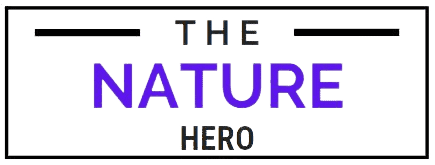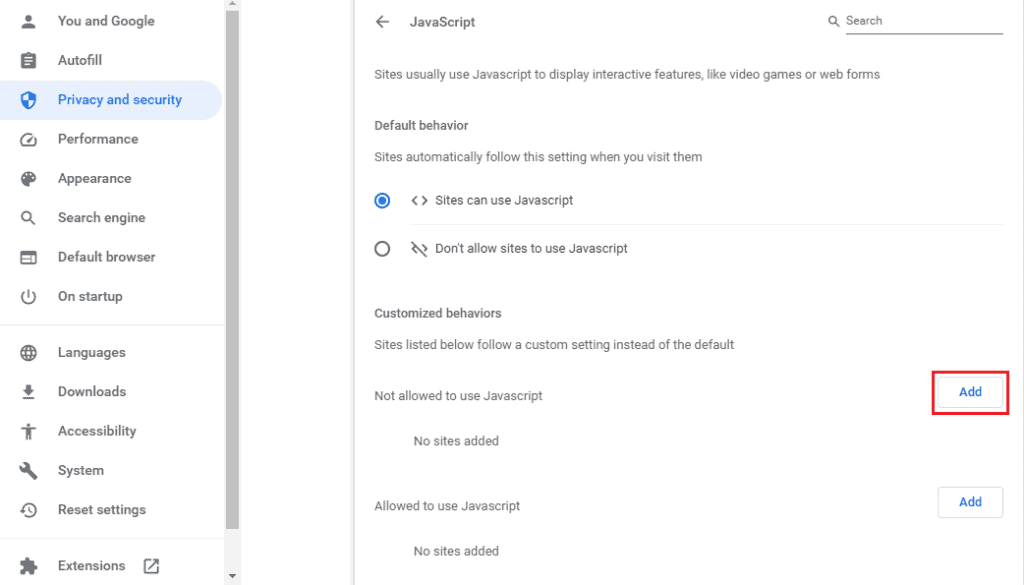If you are into insightful or research articles, you will probably encounter Paywalls needing subscription access.
However, we do not need a wrecking ball to break these Paywalls; some Extensions are enough to bypass them.
Continue reading to learn more about how Paywalls work and details about the Extensions which can bypass Paywalls.
Table of Contents Show
What Are Paywalls?
Paywalls are the restriction arranged by websites or publications to their articles.
We can access these Paywall-restricted articles by paying subscriptions on the site.
Furthermore, you can find Soft and Hard Paywalls on the internet. Let’s learn more about them below;
1. Soft Paywalls
Soft Paywalls provide several free articles before paying for the subscription.
Many renowned sites like Forbes, The New York Times and WIRED use Soft Paywalls.
Moreover, the design of this model of Paywall gives high traffic from light users while receiving circulating revenue from the site’s heavy users.
2. Hard Paywalls
Hard Paywalls does not provide free content without a subscription to the site.
Sites like The Times and Financial Times use Hard Paywalls.
Additionally, Hard Paywalls are hard to bypass and are one of the controversial and risky strategies.
However, the revenue of The Times publication was potentially increased with hard Paywalls.
How To Bypass Paywall On Chrome?
If you use Google Chrome to surf websites and read articles, we can use the Chrome Extension to bypass Paywalls.
Furthermore, GitHub Developers developed a Chrome Extension, which you can install by following the steps below.
- Open your Chrome and Click on three dots (⋮).
- Then go to More Tools and select Extensions.
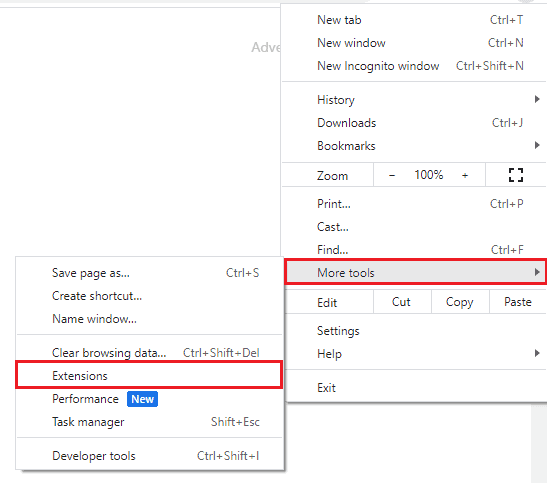
- Now, enable the Developer mode in the right corner.
- After that, download the Zip version of the Chrome Extension.
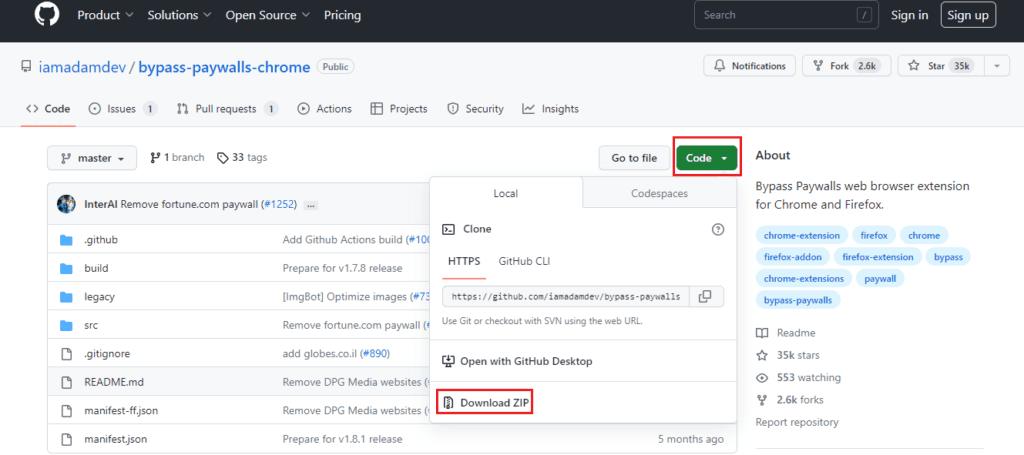
- Extract the Zip file to a secure location, then go to Extension and click Load Unpacked.
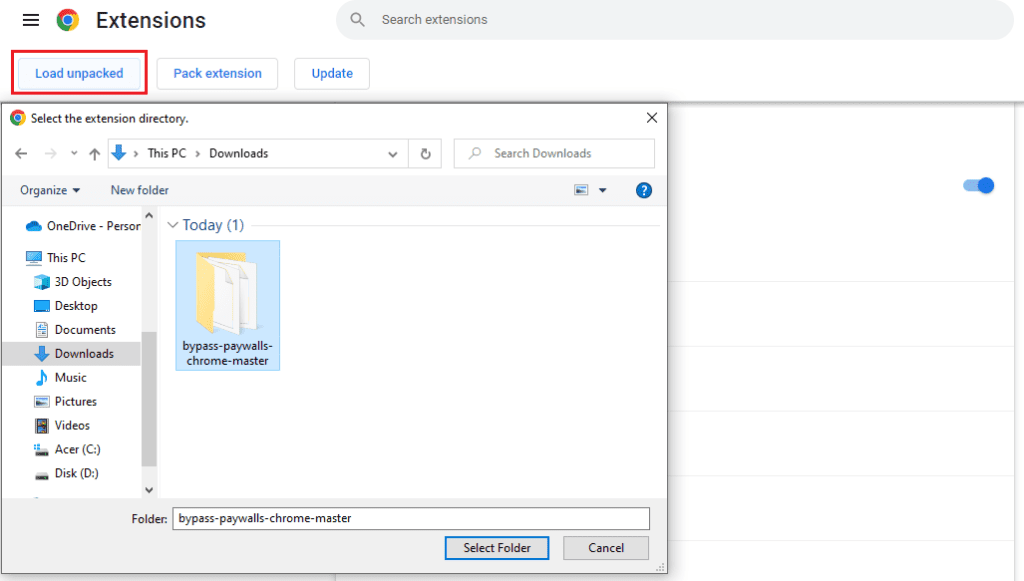
- The Chrome Extension will be added, and you can see sites it can bypass.
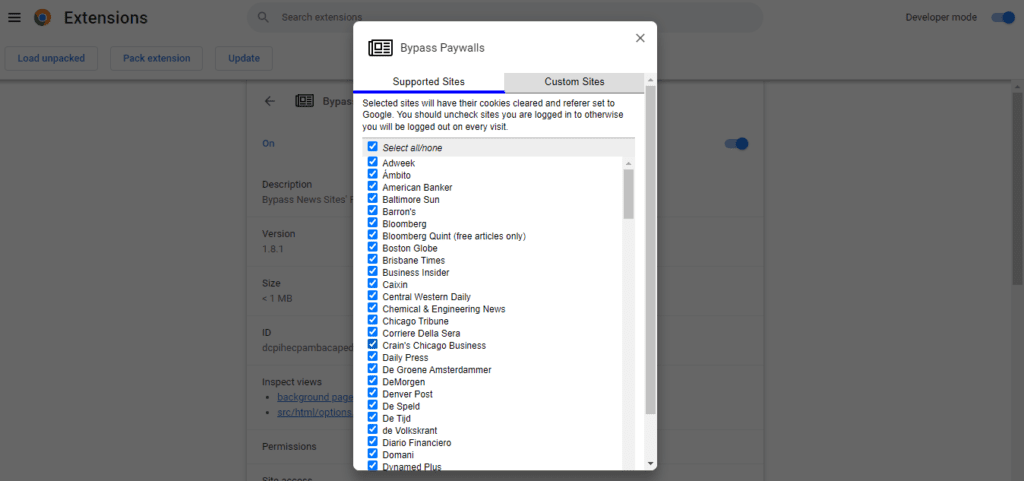
Moreover, as mentioned in the Extension, you can only bypass Paywalls of limited websites.
Therefore, if you cannot bypass all the Paywalls using this Extension, below are a few other Extensions that can solve the issue.
What Are The Best Extensions To Bypass Paywalls?
An Extension is a helpful software module that extends our browser’s features and functions.
You can use Extensions to bypass Paywalls of almost every site and publication.
The following are some best Extensions to bypass Paywalls.
1. Bardeen
Bardeen is a platform for proactive workflow automation created by Artem Harutyunyan and Pascal Weinberger in 2020.
Along with helping users in workflows and automating monotonous tasks, Bardeen can bypass paywall by using it as an Extension.
Follow the steps below to add Bardeen to your browser as an Extension easily.
- First, search for Bardeen.ai in your browser.

- Click “Get Extension” and select “Add to Chrome.”
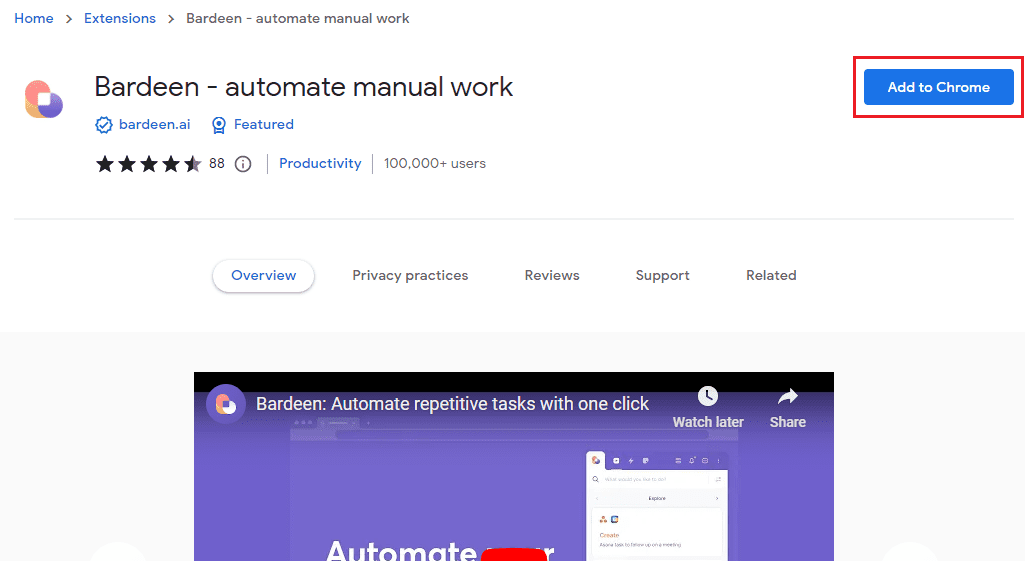
A file will be downloaded, and Bardeen will be automatically added to your Chrome.
Here is an example of how Bardeen can remove Paywalls by adding to the Extension.
2. ReaderMode
ReaderMode is a Chrome reading Extension and web app that is best for soft Paywalls.
It can also remove ads, distractions and clutter, which includes dyslexia support, read-it-later, text-to-speech and many other tools.
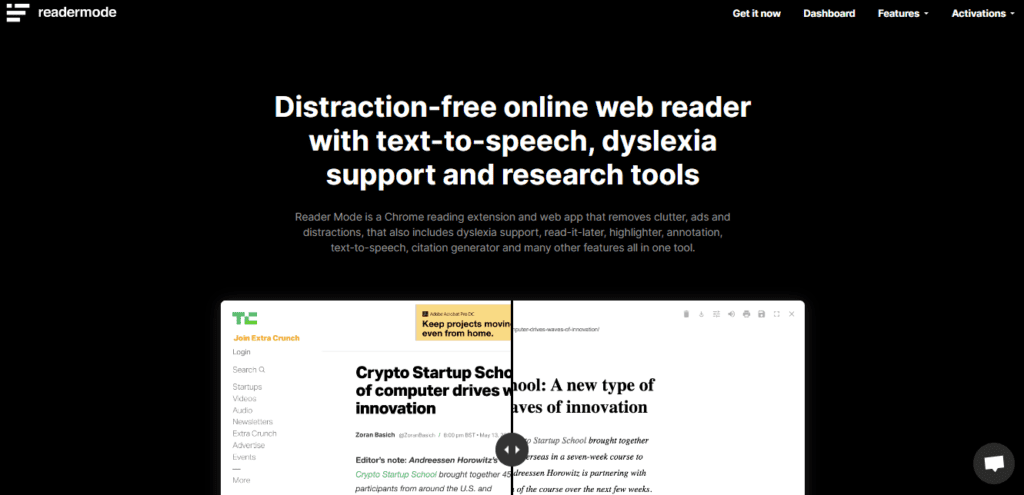
You can easily add ReaderMode in your Chrome and access articles without a subscription.
Furthermore, when I tried to access one of the articles in The Boston Globe, a Paywall of $1 for six months popped up.
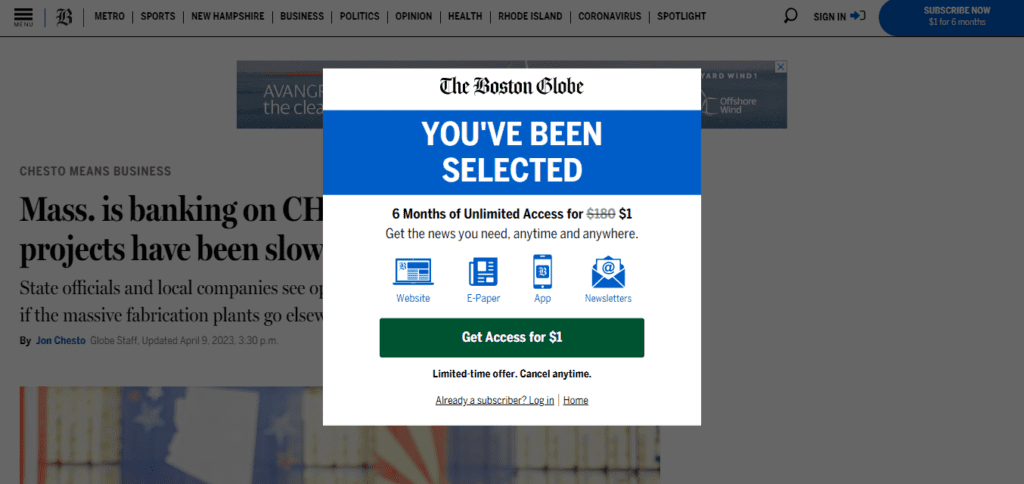
Therefore, you can add ReaderMode to your Chrome by clicking the “Add to Chrome” button and using the Extension in the above article.
Here is how to remove the Paywall by using the ReaderMode Extension.

Now, enjoy reading the articles without any distractions and paying for subscriptions to the sites.
3. UnPaywall
UnPaywall is another great Chrome Extension to bypass Paywalls.
It is known best for accessing scholarly & research articles and has open access to more than 50,000 publishers and repositories.
You can easily add the UnPaywall Extension to your Chrome by clicking the “GET THE EXTENSION” button.

Furthermore, a file will be downloaded after adding it to Chrome, and you can use the Extension on many articles.
An unlock button will pop up on the free articles the UnPaywall Extension provides.

Once you click the unlock button, as shown in the image above, a PDF file of the article will be downloaded with all the contents.
4. uBlock Origin
An uBlock Origin is a free, open-source content blocker first released in June 2014.
Its Extension is available in many web browsers like Chrome, Chromium, Edge, Safari and Firefox.
You can add uBlock Origin in your browser by clicking the “Add to Chrome” button.
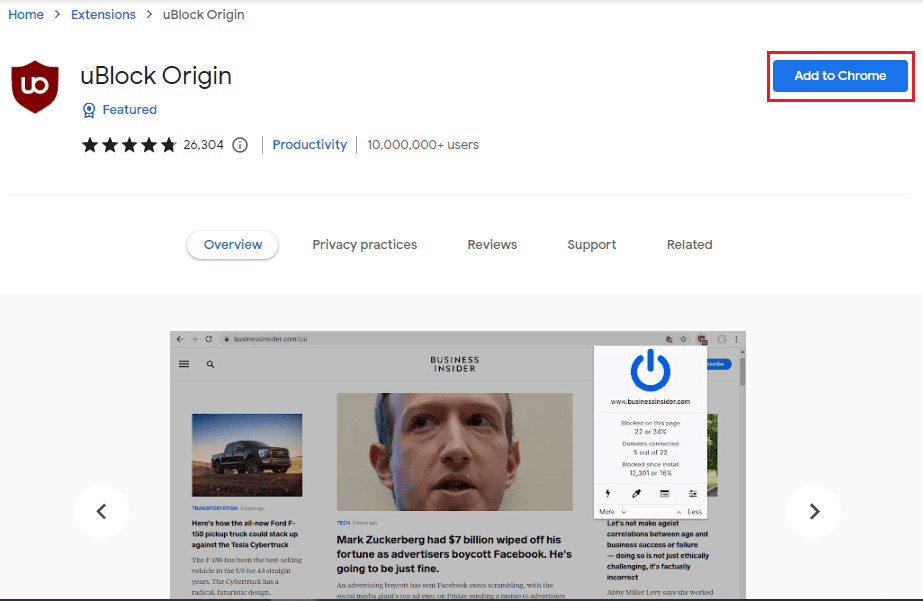
Once you add it to Chrome, it provides several features like blocking popups, significant media elements and remote fonts.
Additionally, it can also disable javascript and cosmetic filtering on the sites.
Here’s an example of the uBlock Origin Extension in action.
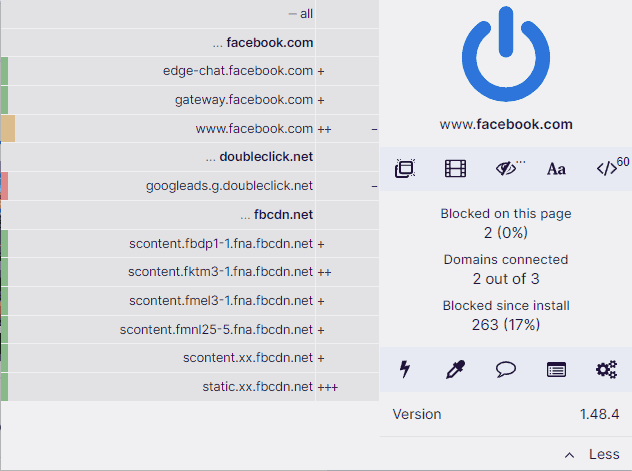
The uBlock Origin displays the filter lists, malicious block lists, host-based lists and many more.
How To Bypass Paywalls Manually?
If none of the Extensions favor bypassing the Paywalls of articles you want access to, then you can try the following manual methods.
1. Disable Javascript
Sometimes you can bypass Paywalls simply by disabling javascript in the sites.
Most Paywall-integrated websites and publications use javascript; disabling those scripts can bypass the Paywalls.
You can disable javascript by following the steps below.
- Click the three dots (⋮) and open settings.
- Now click on Privacy and Security and open Site Settings.

- Scroll down and click on Javascript, then click add on “Not allowed to use Javascript.”
Therefore, javascript will be disabled in the sites which you add on the “Not allowed to use Javascript” section.
2. Summarize Articles Using ChatGPT
You can use the power of AI to bypass the Paywalls of publications and websites.
ChatGPT is one of the most immerging and powerful AI you can ask to summarize the articles you want to read.
You can provide the prompt described below to ChatGPT and quickly get the summary of the article.
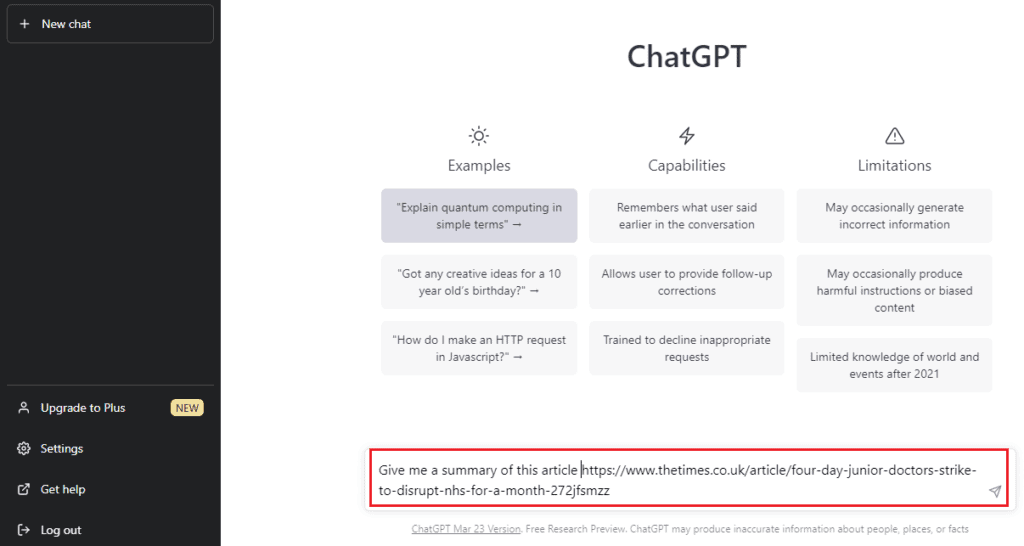
Therefore, ChatGPT will provide the summary and other important information related to the article.

3. Use Incognito Mode
Using incognito mode is another manual way to bypass Paywalls on the sites.
However, this will only work on subscription-based articles having soft Paywalls.
Furthermore, using incognito mode while accessing the sites will present you as a new user and bypass the articles for free.
You can enable incognito mode by clicking the three dots (⋮) and opening “New Incognito Window.”
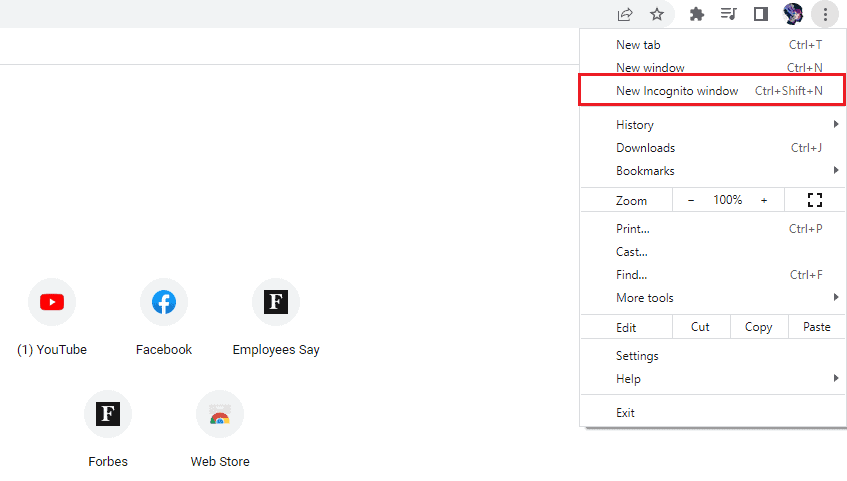
Hence, you can open the articles you cannot access after enabling incognito mode and bypass the Paywalls.
The Bottom Line
Paywalls can be distracting and divert your work and research flow.
You can bypass those subscription-based Paywalls using a few Extensions on your browser.
However, you should also know the potential risks of using Extensions such as malware and phishing attacks.
